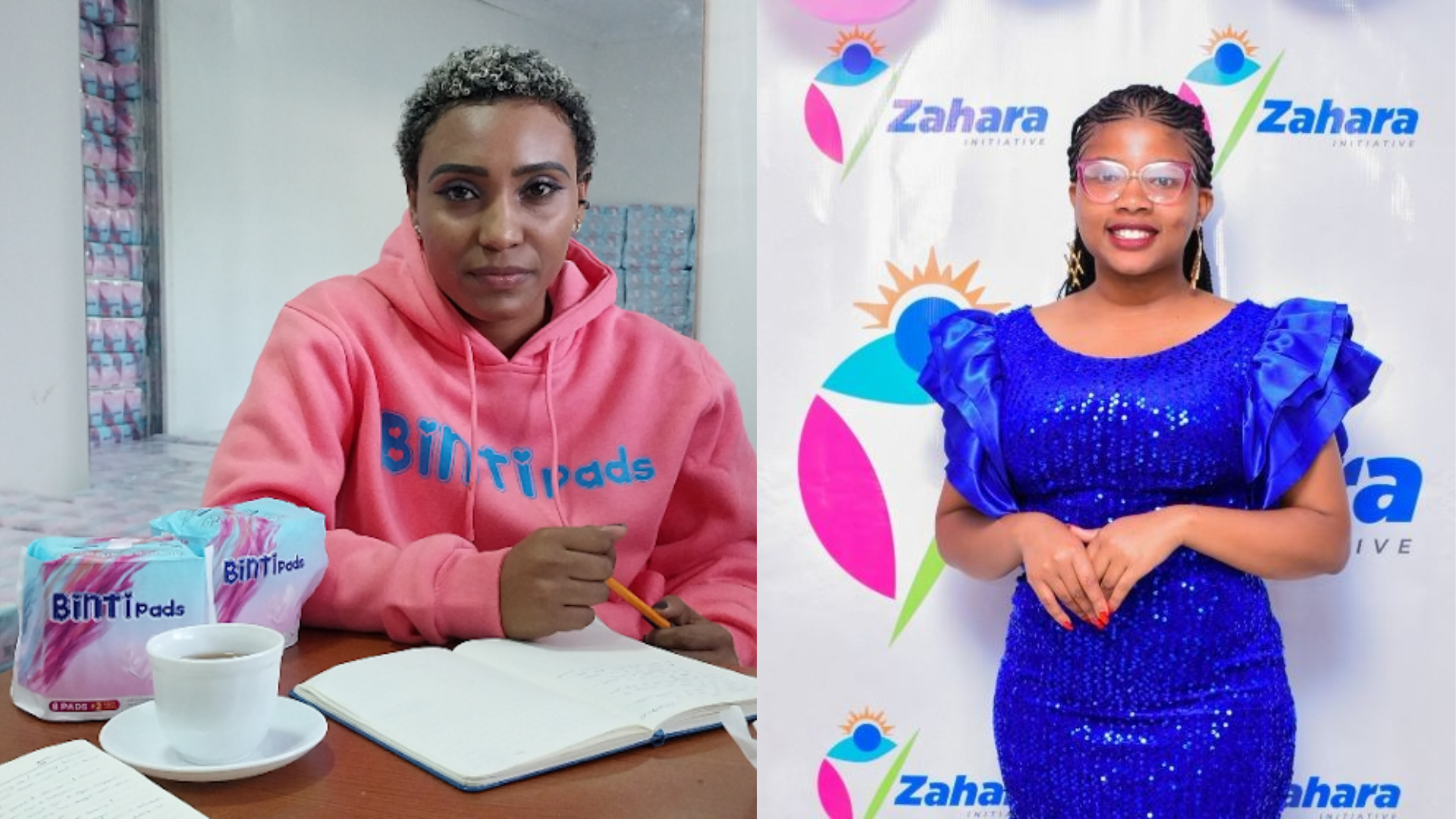Of public health warriors and flawed treaties
Did you know only 20% of health products (read vaccines) are guaranteed to the WHO during a pandemic? Kenya joined an international vaccine body, our neighbours are fighting malaria in a unique way and we lost a great public health activist as others carry on with her work, doctors included.
Here are the main stories in Public Health this week:
- Clinical officers' strike enters 70-day mark
- Ministry of Health allocates sh.1.25bn for childhood vaccines
- Delayed funds to counties cripple health services
In this edition
SPOTLIGHT: Pandemic treaty, not the alliance we hoped for
HEADLINES: Top 3 stories in Public Health this week
INSIGHT: Ordinary humans fighting period poverty every day
PAUSE: The BreakRoom
NEWS: More stories in Public Health this week
QUICK: Other stories worth a mention
REGION: Top stories across the region in Public Health
EXTRA: An unexpected symptom of endometriosis
SPOTLIGHT
Pandemic treaty, not the alliance we hoped for

Disputes over intellectual property rights have stalled talks to govern the manufacture and procurement of vaccines after the COVID-19 pandemic. Remember, while some countries administered booster shots many in the Global South were still looking for vaccines.
“It was a very desperate situation. [Vaccines] in our minds were the only antidote to this catastrophe, but we were not able to access them.” - Hadley Sultani, Kenya's Health Deputy Director General
Last month nations met at the World Health Assembly to negotiate a legally binding pandemic treaty and some key provisions are:
- 20% of pandemic-related health products are guaranteed to the WHO during a pandemic.
- Developing a common fund to support low and middle-income countries.
- Countries to share information on new disease-causing pathogens and the technologies used to combat them.
Aids Healthcare Foundation (AHF) among others have proposed a provision to establish an independent oversight body from the WHO that uses a clear framework to penalise non-compliance with the treaty. Dr Penninah Itung, the AHF Africa bureau chief said “The North cannot build walls around their national borders as seen with the Ebola epidemic in West Africa, in Uganda, and with Covid as well.”
No one could've predicted the pandemic ravaging European superpowers as it did before taking hold in other regions. With declining populations in first-world countries and a youthquake expected in Africa, the treaty must consider every nation an equal innovator moving forward. There may not be time to amend a faulty treaty should another pandemic strike.
HEADLINES
The week's main stories
- Clinical officers' strike enters 70-day mark: 8,500 officers still await permanent employment and their union (KUCO) chairperson, Peterson Wachira, says the strike will end when their demands are met. Governor Mutula Kilonzo pledged his support and will facilitate the promotion of deserving officers in Makueni County.
- Ministry of Health allocates sh.1.25bn for childhood vaccines: 5 million measles, tetanus, polio and BCG vaccines are being processed for distribution to nine vaccine stores nationwide. Meanwhile, Kenya joined the International Vaccine Institute (IVI) and will host its continental office.
- Delayed funds to counties cripple health services: The national government owes counties a ksh.100 billion and the latter are lacking medical supplies due to debts to Kenya Medical Supplies Authority (KEMSA). In a new survey, 46% of Kenyans cited drug shortage as a major concern.
INSIGHT
Ordinary humans fighting period poverty every day

From our last edition, women representatives will oversee the sanitary pads programme and we questioned what they will accomplish with a sh.940 million budget and their voices. As Janet Mbugua's Inua Dada Foundation fights period poverty, two more women are doing their part.
Joy Kinoti
"The stark reality that something as natural as menstruation could hinder a girl's education and future, and even jeopardise her safety inspired the creation of Zahara Initiative to provide sustainable solutions."
The initiative works through a "pad bank" model where volunteers contribute sanitary pads at the dispensaries located in primary schools. So far the organisation distributes five packets per girl every month while the sanitary towels program is meant to distribute nine pads annually. This shows you the power of one person who cares enough to be the change they wish to see. You can donate to their pad bank here.
Lorna Wanjiku
In January 2021, after watching a social media clip of a girl sharing how her father molests her in exchange for sanitary pads, Lorna began research and development for what would become her company.
"I founded Binti Marvel in May 2021 and we manufacture Binti pads and panty liners. We started with four employees — a warehouse manager, three sales people and myself. I used to be the driver, the accountant, social media manager and the call centre for customer support."
In October 2023, Lorna benched her aviation career as a Head of Inflight and Binti has gone from producing 100,000 packets in 10 months to 100,000 per month. The pads are available in Nairobi, Kiambu, Kajiado, Machakos and Mombasa.
Can the government consider funnelling some of the funding allocated for the sanitary pads programme through existing initiatives? I invite any lawyers, medics or related experts to provide further insight. We all want the same thing —sustained action — and people are walking the talk.
PAUSE

NEWS
What else we learned
- Jhamby Koikai, activist and educator, died from complications after a gruesome 25-year battle with endometriosis. Her last appeal to President Ruto was to invest in women's healthcare citing the Centre for Endo Care in Atlanta where she underwent life-saving surgery and then launched her online activism.
- A new AI X-ray machine empowers health workers at Nakuru Referral Hospital to quickly diagnose tuberculosis (TB) after extensively training all radiology staff on its use. This comes after Kirinyaga County implemented an AI system to boost TB diagnosis at Kimbimbi Hospital.
- Since HIV self-testing services (HIVST) were launched in 2018, 89.5% of men now know their HIV status, compared to 73% reported in 2018. Most men identified through HIVST kits are aged between 15 and 64 years. The National Syndemic Disease Control Council (NSDCC) is organising a marathon to advocate for men's sexual health on World Aids Day 2024.
QUICK
One-liners
- Pressure piling on Kenya to end new HIV infections by 2030 [Citizen]
- Kenya is a victim of greed and incompetence, not climate change [Nation]
- Homes flooded, disease outbreak looms as Lake Naivasha water rises [Citizen]
- Heart diseases: what Kenya should do to ease rising burden [Business Daily]
REGION
What's happening next door?
[UG] Uganda Blood Transfusion Services targets 300,000 units of blood annually [Nile Post]
[UG] Study faults govt on failure to educate public before COVID vaccination rollout: Makerere University Research & Innovation Fund found that some respondents didn't consider the vaccines safe and didn't believe in contracting COVID-19 after vaccination. This could impede vaccine uptake in future crises. [Nile Post]
[TZ] Tanzania pushes for 95% HIV global testing target [The Citizen]
[TZ] Govt allocates sh.66.7bn for medical equipment: This comes after purchasing 280 digital x-ray machines and 322 ultrasound machines in primary healthcare facilities across 4 years. They plan to purchase more X-ray facilities for Kharumwa and Nyangh’wale Health Centres. [Daily News]
[DJ] Djibouti breaks new ground in war on malaria: Djibouti has released swarms of genetically engineered mosquitoes in Ambouli to fight malaria. The non-biting male mosquitoes carry a gene that prevents female offspring from surviving to adulthood, thereby reducing the mosquito population over time. [The East African]
[RW] Local research plays crucial role in tackling Rwanda’s health issues: Dr Eric Remera, Head of Research at Rwanda Biomedical Center (RBC), reported an 88% decline in Malaria cases in 2023, tuberculosis patients decreased by 41.67% from 2000 to 2021 and life expectancy increased from 64.5 in 2012 to 69.6 in 2022. [New Times]
EXTRA
An unexpected symptom of endometriosis
Jhamby's endometriosis diagnosis took 17 years and Rosemary Mwaniki wondered why no doctor asked her if she felt pain in her right leg while seeking treatment for severe cramps every month.
Doctor-driven education can smoothen the diagnosis and treatment process as patients are often exhausted from battling the condition. Dr Chris Obwaka sheds light on this little-known symptom in this short video.

There are many global, regional and grassroots health developments taking place. With avenues like social media and this newsletter, there's never been a better time to initiate conversations on better health for everyone. "Pick a cause and fight for it", Wangari Maathai used to say.
Let us know what you think of this edition and any health initiative you're working on, we're building this community for you.

